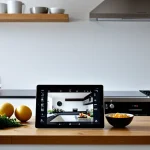Core Staff Training Approaches in UK Kitchen Restaurant Bars
Successful restaurant bar staff training in the UK hinges on structured onboarding processes and detailed induction routines. New hires typically undergo comprehensive introductions to kitchen operations and bar standards, ensuring familiarity with the establishment’s specific hospitality service training requirements. This initial phase helps align staff with both safety protocols and service expectations.
A key method involves role-play and scenario-based training, which immerses trainees in realistic service situations. For example, staff might act out handling busy service times or addressing customer requests, building confidence and competence before live interactions. This technique enhances problem-solving and communication skills crucial to high-quality hospitality.
Have you seen this : How Can UK Restaurants Enhance Their Interior Decor for a Better Dining Experience?
Maintaining consistent staff training methods UK relies heavily on ongoing monitoring. Supervisors regularly assess performance to ensure compliance with industry service standards. Feedback mechanisms and refresher sessions are integral to reinforcing best practices and adapting to evolving customer needs. This continuous cycle supports the delivery of exceptional hospitality experiences across kitchen and bar settings.
Core Staff Training Approaches in UK Kitchen Restaurant Bars
When implementing staff training methods UK, comprehensive onboarding processes form the backbone of effective restaurant bar staff training. Induction routines introduce new employees to both kitchen and bar operations, ensuring they understand essential hospitality service training elements. This approach helps embed safety standards and expected service behaviours from day one.
This might interest you : How do UK restaurant bars attract and retain loyal customers?
Role-play and scenario-based training further enhance learning by providing hands-on experience with common challenges. By simulating peak service times or difficult customer interactions, trainees build practical skills that directly apply in real situations. This method deepens their understanding of hospitality service training dynamics and sharpens their responsiveness.
Ongoing monitoring is crucial to sustaining service quality. Supervisors use performance assessments to gauge adherence to training goals, highlighting areas requiring reinforcement. Regular feedback sessions and refresher training ensure that staff consistently meet industry benchmarks, making these processes key components of staff training methods UK.
Core Staff Training Approaches in UK Kitchen Restaurant Bars
Effective staff training methods UK begin with thorough onboarding processes and induction routines tailored to both kitchen and bar roles. These steps familiarise new hires with specific kitchen restaurant bar training practices and the establishment’s service ethos, setting a foundation for consistent performance.
Restaurant bar staff training prominently features role-play and scenario-based methods. This hands-on approach simulates real challenges, such as managing busy service periods or addressing complex customer demands. Trainees gain critical hospitality service training experience in a controlled environment, enhancing decision-making and communication before engaging with actual customers.
Monitoring progress throughout training is vital to ensure standards are met. Supervisors regularly evaluate staff using established benchmarks aligned with UK hospitality regulations. Maintaining this oversight allows for targeted feedback and timely refresher sessions, securing ongoing adherence to staff training methods UK and sustaining high-quality service delivery in kitchen restaurant bars.
Core Staff Training Approaches in UK Kitchen Restaurant Bars
When adopting staff training methods UK, onboarding processes and induction routines serve as foundational pillars. New employees receive tailored introductions to kitchen and bar operations, which embed essential safety protocols and service standards early on. These processes clarify expectations and help align staff with the establishment’s culture and operational flow.
A standout approach in restaurant bar staff training is role-play and scenario-based exercises. These techniques simulate real service environments, such as handling rush hours or managing specific customer requests. This hands-on training sharpens practical skills in communication, problem-solving, and teamwork, making it easier for staff to respond effectively during live service.
To uphold service consistency, continuous monitoring is indispensable. Supervisors regularly assess performance against industry benchmarks, providing targeted feedback and refresher training where necessary. This ensures that hospitality service training remains dynamic and responsive to emerging standards, ultimately fostering excellence across kitchen and bar teams.
Core Staff Training Approaches in UK Kitchen Restaurant Bars
Effective staff training methods UK begin with structured onboarding processes and detailed induction routines tailored to kitchen and bar environments. These introductions familiarise new hires with operational procedures, safety standards, and service expectations, ensuring alignment with the establishment’s culture from the start.
A cornerstone of restaurant bar staff training involves role-play and scenario-based exercises, which replicate real service challenges like peak hours or complex customer interactions. This immersive method builds confidence and sharpens key hospitality skills such as communication, problem-solving, and teamwork in a risk-free setting.
Maintaining consistent performance requires ongoing monitoring. Supervisors evaluate staff against industry benchmarks, providing targeted feedback to reinforce competencies. Continuous assessment and refresher training guarantee adherence to hospitality service training standards, supporting high-quality customer experiences across UK kitchen and bar teams.







